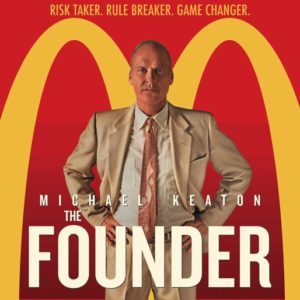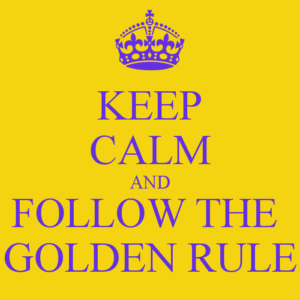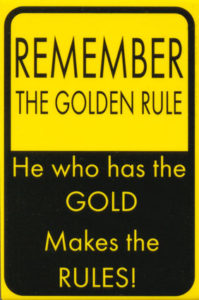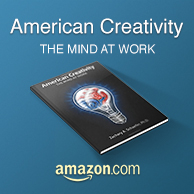What does Batman have in common with Ray Kroc? Michael Keaton.

Disclaimer: Before you continue reading, if you don’t fit the following four criteria I encourage you to go back to watching cat videos and scanning your Facebook news feed, because you won’t get much value out of this article. Continue reading ONLY if you are (a) thinking of starting a business, (b) you are involved in a startup, (c) you want to quit your 9-5 job to follow your dreams, or (d) you think like an entrepreneur. To all others, say hi to the cats for me.
In Keaton’s most recent movie, The Founder, he played the founder of McDonald’s, Ray Kroc. I thought it was a great movie in terms of plot, performance, and pace, but what I liked most about the film was that it portrayed Ray Kroc in a very holistic manner. It didn’t romanticize him too much and it didn’t make him out to be a heartless corporate robot. Did he make some very difficult business decisions and act in unethical ways, of course he did. Anyone that has the ambition to grow a company that they did not originally start into a global dominator and one of the largest chains in the world will be faced with making many morally questionable decisions.

Like all movies I watch at home, I had one of my yellow legal pads out to jot down notes while the story unfolds. For me, The Founder was full of useful business wisdom that will benefit entrepreneurs and Wantrepreneurs (great word Noah Kagan!), and I’ve boiled down my thoughts to 10 pieces of advice that every entrepreneur should follow to be successful…the same 10 things Ray Kroc would not want you to know if you were his competition.
Lesson One – Never Apologize For Your Ambitions
“When is enough going to be enough for you?” Honestly, Probably Never. Money is a steering mechanism that helps people achieve their goals and live their values. The problem is that many people with money haven’t charted their goals and values, so they adopt other people’s goals and values and live the life that other’s expect of them. That rarely leads to a life of character and quality, a life that is admired by current generations and inspires future generations. Everyone has desires and things they want, but far fewer people have ambition, the instinctual need to follow their own internal drum beat to achieve more, hit goals and set new ones, keep climbing mountain tops until there are no more peaks to be conquered. Follow Mike Dillard’s mantra and become a self-made man (or woman). Never apologize for your ambitions.
Lesson Two – Find Your “Symphony of Efficiency”
In the movie, the McDonald’s brothers were supposedly looking for ways to reduce physical steps in their kitchens and make the meal production more efficient (faster), so they used a very creative way to redesign their workspace. They used chalk to draw out the kitchen, including where all of their equipment was located, on a tennis court. They held a dry run training session where they told their employees to go through the motions of their job while the two brothers observed, one from ground level and one perched on a ladder like an orchestra conductor. While I assume this never happened, it is an extremely creative and interactive way to identify and implement efficiencies. Armed with a stopwatch and clipboard, they would have made Fredrick Taylor blush. Oh yeah, he’s the founder of Scientific Management, also called Taylorism, and who Peter Drucker credits as being the first guy to apply the scientific principles of observation and testing to human work. Whether they know it or not, the entire quick service restaurant industry (i.e., fast food) is based on Taylor’s 4 principles. But efficiency isn’t everything, so never forget that doing things “effectively” is as important as doing them efficiently. Effectiveness is “doing the right things” and efficiency is “doing things right.”

Lesson Three – Don’t Underestimate the Learning Curve
Kroc’s story demonstrated that with any new venture, mistakes will be made and mini-failures will arise. The key is using these experiences as a source of education and motivation to keep you moving toward your big goals. This comes from developing a “Growth Mindset” and being willing to recognize that anything worth doing isn’t easy, there will be lots of things to learn along the way, and there’s always more than one way to do things right. To better understand the trials and tribulations of being an entrepreneur, check out Cameron Harold’s article on Tim Ferriss’ Four Hour Work Week blog. The article is called “Harnessing Entrepreneurial Manic Depression” and you should check out the actions to take when moving between “Uninformed Optimism” and “Informed Pessimism.” I keep a copy of this article on all my devices for easy access, inspiration, and a reminder that being an entrepreneur isn’t supposed to be easy.
Lesson Four – Follow Your Gut & Choose Yourself
Both Ray Kroc and Steve Jobs were advocates of following your instincts, listening to your internal voice, and as James Altucher has taught us, “choosing yourself.” If you do these things it is astonishing what you can achieve. Now none of these men are advocates of being blind to reason, logic, or analysis but all three of them have cultivated a close relationship to their imagination. And once they settle on an idea that they felt in their bones, there are no obstacles that could prevent them from executing that idea. Follow your gut but use your brain.

Lesson Five – Work Really Hard & Don’t Focus on the Haters
Self-belief, confidence, and efficacy are often followed by self-doubt, and that usually comes from others telling us (implicitly and explicitly) that our ideas suck. As the artfully eloquent dialogue points out between James Franco and Seth Rogen’s characters in the Oscar losing movie The Interview, “They hate us cause they ain’t us.” They’re talking about the fact that with great success (or fame) comes jealousy, social comparison, sabotage, lost friendships, and guilt. But before you find success, you have to be willing to outwork your competition. Gary Vaynerchuk says, “Your legacy is being written by yourself. Make the right decisions.” And he knows hard work, having turned his dad’s liquor store into a $60 million/year e-Commerce giant. As the saying goes, “The only place that success comes before work is in the dictionary.” So here is a simple formula for success: Work Really Hard + Laser Focus + Great Idea – The Haters = SUCCESS
Lesson Six – Never, Ever Do Handshake Business Deals
This one is simple. DON’T EVER DO THIS. I am not usually a big fan of using attorney’s services because there are so many online opportunities to do things on your own, but I do realize they are necessary to keep around for filing documents and wearing nice suits. But this is one case where getting things in writing is essential, and the goal is to clarify expectations and terms, as well as preserve relationships. Handshake deals always make one party out to be a dirty dog. Just because you have a signed contract, however, doesn’t mean it can be enforced in the way you think it should be. As Ray Kroc says in the movie, “Contracts, like hearts, are meant to be broken.” I don’t agree with this but the legal industry does, so do your due diligence, seek professional advice, and get things in writing!

Lesson Seven – Treat Partners Professionally
Not all of the lessons from The Founder were based on things you should do. This lesson is based on things you shouldn’t do, and that’s treat your business partners, or anyone, the way that Kroc’s character often treated people in the film. Screaming at people over the phone is the least persuasive way to get what you want. Hanging up on people is a close second – and Kroc’s character did both throughout the movie. Nick Offerman’s character was very even-keeled and calm throughout the film, but Kroc’s provocative communication style eventually got under his skin. His ethics could definitely be questioned, especially if you apply Immanuel Kant’s “categorical imperative,” which is a duty-driven heuristic that asks you to make decisions only if they could become a universal law that everyone lived by. In the movie Kroc bragged that if his competitor was drowning, rather than give him a hand he would stick a hose down his throat. That kind of hyperbole might be good on the battlefield or in a locker room but is rarely a strategic long term mindset to cultivate in the world of business. What’s more problematic is that Kroc eventually viewed his own business partners as the competition. Once we begin to resent the ones closest to us, our relationships quickly dissolve. Kroc was not exhibiting what David Fields calls “right side up thinking.” Don’t make this mistake.
Lesson Eight – Build a Complementary Team
In the movie, Ray Kroc has a serendipitous meeting with his eventual forward thinking business partner, Harry J. Sonneborn, who argued that Kroc was not in the burger business but was in the real estate business. In addition to bringing on Sonneborn who had some real business chops, Kroc also developed a tenacious burger flipper named Fred Turner, who eventually became Chair and CEO of McDonalds. Kroc hired his first bookkeeper, June Martino, who didn’t even have bookkeeping experience, who eventually became a Corporate Secretary, Treasurer, and Director. The point is important: successful teams are made of complementary skill sets. If Kroc had gone out and tried to find another tenacious alpha like himself, the growth of McDonald’s would not have happened so quickly. He needed people in his inner circle with skills sets that were different, but complemented, his own. There are a lot of great tools on the market to help companies select and hire people with complementary skill sets. Two tools that are easy to use and interpret, are accurate, and have a user-friendly interface are Gallup’s Strengths Finder and the Predictive Index Assessment Methodology. One of the best online marketers in the world, a man who is building an empire that will (eventually) help millions of entrepreneurs, doesn’t write the code for his product: ClickFunnels. Why? Because Russell Brunson changes people’s lives by building cult brands of value hungry followers. Oh, and those brands happen to all be multi-million dollar companies composed of teams with complementary skill sets. [Side Note: Any serious entrepreneur must read his new book, Expert Secrets. Do yourself a favor, open a new tab, go to Amazon, and change your life.]
Lesson Nine – Golden Arches & Golden Rules
Kroc had the vision of the golden arches, he knew what they could, and did, become. According to the movie, while he was building his empire of golden arches he forgot about the golden rule. Treating people the way we want to be treated should be applied in all areas of life, including business. You can be competitive without being a jerk. You can strategically outmaneuver your competition without coming off as a narcissist. If you wouldn’t want others to treat you a certain way, then don’t act that way either.

Lesson Ten – 52 Is the New 22
Perhaps the most important lesson for entrepreneurs is that it is NEVER too late to start a new venture or follow your dreams. Ray Kroc was 52 years old when he sold his first McDonald’s franchise. When everyone around him was playing golf and talking about retirement, Ray was doggedly pursuing a dream. He proved that 52 is the new 22. In the movie, Kroc motivates himself by listening to a famous Calvin Coolidge quote, “Nothing in this world can take the place of persistence. Talent will not: nothing is more common than unsuccessful men with talent. Genius will not; unrewarded genius is almost a proverb. Education will not: the world is full of educated derelicts. Persistence and determination alone are omnipotent.”
For better or worse, the institutions and organizations we’ve created tell us what we should be thinking about, talking about, and doing with each decade of our lives, and as we approach our 50s, conventional wisdom is that everyone should be focused on retirement. What a joke. Retirement is a modern idea and does not have to be part of your goals. We each need to carve out our space in this world and those of us who will be remembered for big positive impacts are the ones who go against the grain, who don’t always listen to the experts, and who are bold enough to pursue goals in spite of everyone trying to “help us” make good decisions.
Regardless of what people think of Ray Kroc’s business ethics or the current business practices of McDonald’s, Ray embraced the struggle for decades. From the time he was 18 until the time he was 52, Kroc knew that if he kept digging, he would eventually find gold. It just so happened that his gold formed two arches. Ray Kroc was truly a “52 year overnight success,” who for better or worse, lived by the “other” golden rule.

To accelerate your success and start thinking like an entrepreneur, shoot me an email and we’ll craft a plan together: Zach@SparkTheDiscussion.com



